
The Free Press

LONDON — Since October 7, there have been many dark days here in London. Every Saturday the streets are filled with demonstrators calling for the end of the state of Israel, several Jewish schools have had to close due to safety concerns, and the number of antisemitic incidents has gone through the roof. I have attended and documented a number of these protests, which on occasion have descended into violence, confrontations with police, antisemitic chanting, and even calls for jihad.
All bad, you might be thinking. And you’d be right. But they pale in comparison to what happened this past Wednesday, when the British Parliament, which has been around for 800 years, capitulated to fear of Islamist violence.
While the details of parliamentary proceedings in the UK will likely seem arcane and convoluted, especially to the American reader, bear with me for a paragraph or two because it’s important to understand why what just happened is so outrageous.
Wednesday was an Opposition Day in Parliament. There are approximately 20 such days a year, in which opposition parties rather than the government can bring motions for debate and vote in the House of Commons. These votes are not binding on the government, but are nonetheless an expression of the will of Parliament.
Such days are usually uneventful but on Wednesday, the Scottish National Party—a small opposition party led by Humza Yousaf, whose in-laws successfully fled Gaza in recent months—set a trap designed to expose the Labour Party’s internal divisions on the Israel-Hamas war. The SNP’s motion called for an “immediate cease-fire” in Gaza and described Israel’s actions since October 7 as “collective punishment.” The Labour Party then submitted an amendment to this motion that instead called for an “immediate humanitarian cease-fire” to be observed by “all sides” and demanded a two-state solution. The Conservative government then submitted its own amendment to the original motion calling for an “immediate humanitarian pause” while also asserting Israel’s “right to self-defense.”
By convention, if the government tables an amendment to a motion submitted by an opposition party, it is the government’s amendment that is then debated. That meant the Labour Party—which increasingly relies on the Muslim vote for a significant number of its seats—was stuck between a rock and a hard place: either they would have to vote for the extreme anti-Israel SNP motion which calls Israel’s actions “collective punishment,” or vote for the government’s amendment which does not call for the cease-fire Labour supporters demand.
At this point, Labour MPs started to privately voice concerns over their safety to the Speaker of the House of Commons, who chairs Commons debates. Lawmakers who were unwilling to bend the knee and vote for the SNP motion argued they would then be accused of being “against a cease-fire” and at risk of becoming the targets of Islamist violence. The Speaker, no doubt under pressure from the Labour leadership, accepted this argument and broke convention to allow both the government’s and Labour’s amendment to be debated. (The Speaker has since admitted error and apologized but is nonetheless under pressure to resign.)
The upshot of this procedural controversy is simple and alarming: the Speaker of the House of Commons overturned established precedent because, as he later himself admitted, he feared for the safety of Members of Parliament. Put bluntly, British democracy ceased to operate by its own rules in order to prevent its elected representatives from being violently hounded, if not killed, by Islamist mobs.
In one sense, the Speaker’s decision was not unfounded. MPs really are at risk. Only weeks prior, Mike Freer, a Conservative MP who represents a constituency with a significant Jewish population, announced that he would not be seeking reelection because of threats to him and his family over his support for Israel. Explaining his decision, he revealed that he had started wearing stab-proof vests when meeting constituents.
In 2021 another Conservative MP, Sir David Amess, was stabbed to death by an Islamist at such a meeting. In 2017, an Islamist terrorist mowed down pedestrians before stabbing an unarmed police officer to death outside the gates of Parliament.
This was all undoubtedly on the minds of our parliamentarians in the lead-up to yesterday’s vote. MPs on both sides of the aisle have faced angry mobs when out in public in recent weeks, with one MP warned by the police to stay away from his own house due to a hostile gathering outside his family home.
On Wednesday evening, as MPs debated the cease-fire motions inside the chamber, protesters projected the words “from the river to the sea” onto Big Ben.
On Thursday, Jewish Conservative MP Andrew Percy gave a powerful speech in the House of Commons in which said he had just returned from Israel and that “I actually felt safer in Israel than I do in this country.”
The journalist Dan Hodges echoed something I have personally heard from several MPs myself when he wrote on X that he had spoken to an MP who “had weighed up his own physical safety when deciding on how to vote on yesterday’s Gaza motion. We have crossed a line now. We are not a properly functioning democracy if this is a factor in how our elected representatives act.”
Suella Braverman—who was Home Secretary, the minister in charge of policing and immigration, until she was ousted by Prime Minister Rishi Sunak in November—did not mince her words when describing the significance of what had happened: “The Islamists. . . are in charge of Britain now.”
Many in her own party took issue with that claim, but it is now clear that Britain has a problem with Islamist extremism that requires immediate and drastic action. Appeasement will make the problem worse. If politicians cave to intimidation and threats of violence as they did on Wednesday, it will encourage only more intimidation and threats of violence.
The government, both the major parties, the police, and the security services need to understand we no longer have the luxury of pretending this issue away.
People who threaten violence should be arrested and locked up for a very long time. If the threats are directed against elected MPs, that is an attempt to subvert our democracy and should be treated as such, with severe sentences. Foreign nationals who engage in, call for, fund, or glorify violence, religious hatred, or other violent extremism should be deported immediately.
We must be honest with ourselves. If we do not act now, as sadly I am almost certain we won’t, the result will be more violence and more intimidation. It is not a pleasant truth to have to admit, but things will only get worse if we refuse to speak it.
Konstantin Kisin is the co-host of the podcast Triggernometry. Read his essay for us on the people mugged by reality on October 7, “The Day the Delusions Died.”
And to support our mission of independent journalism, become a Free Press subscriber today:

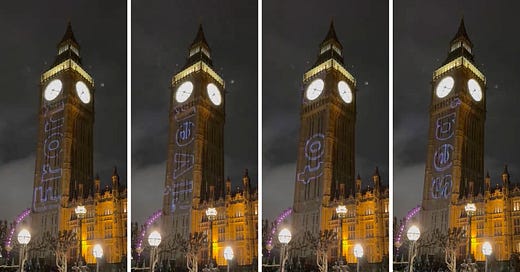



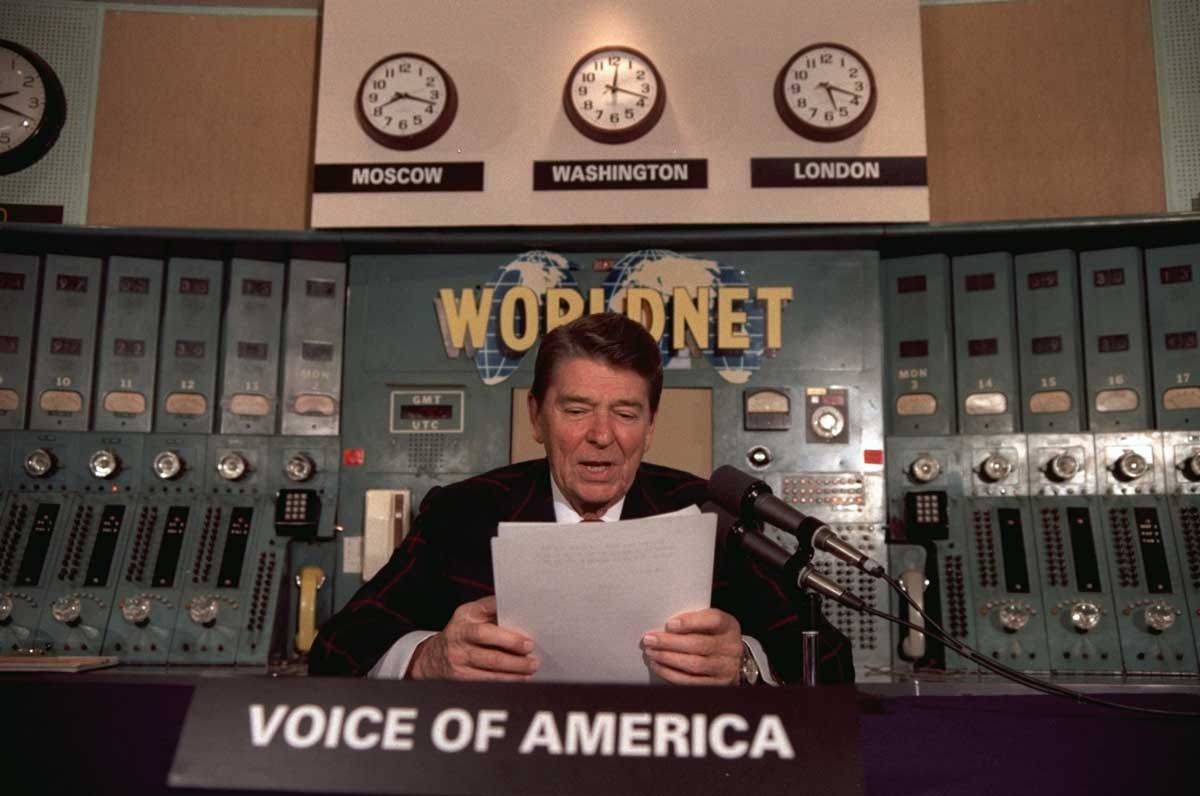

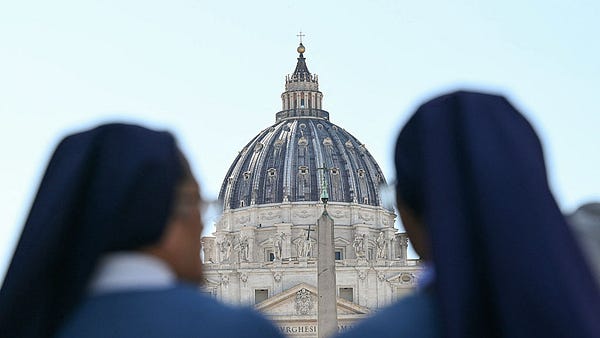

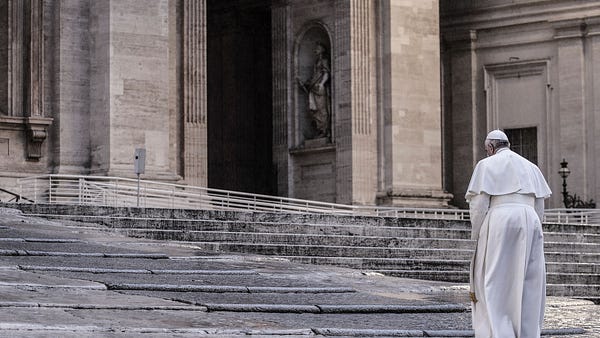

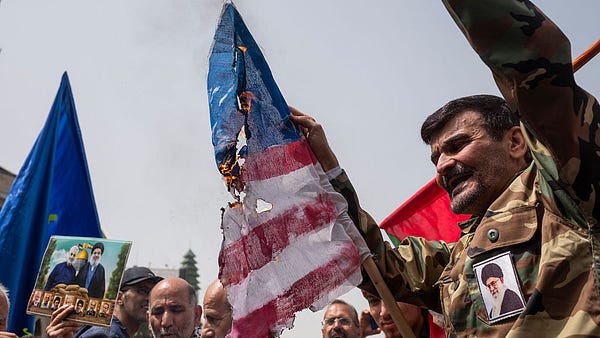

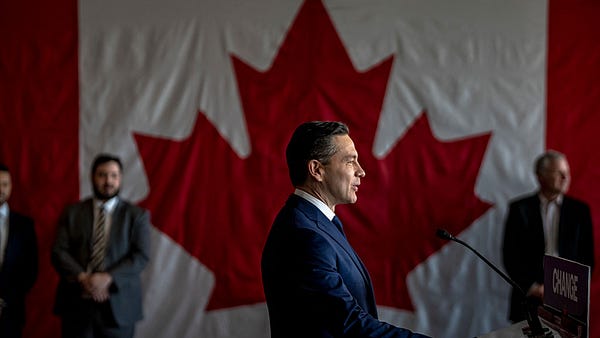

The American Democratic Party is no better, sadly. They openly say they are afraid of defeat if Muslim voters stay home in the presidential election and are willing to sacrifice Israel to prevent defeat at the polls. Notice how they always talk about Islamophobia in the same sentence as Antisemitism as if Muslims were attacked by Jews on Oct 7th and had their breasts cut off. Of course, #TheFP will continue to call religious Republican politicians "radicals" while they support Israel and oppose Hamas.
It's a cliche to bring up Michel Houellebecq's book "Submission" in these contexts. Too facile. Too reductionist. Too much of a pseudo-intellectual mic drop. Yes, that's all true. But, it's also not completely wrong.